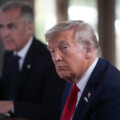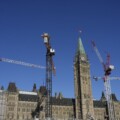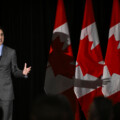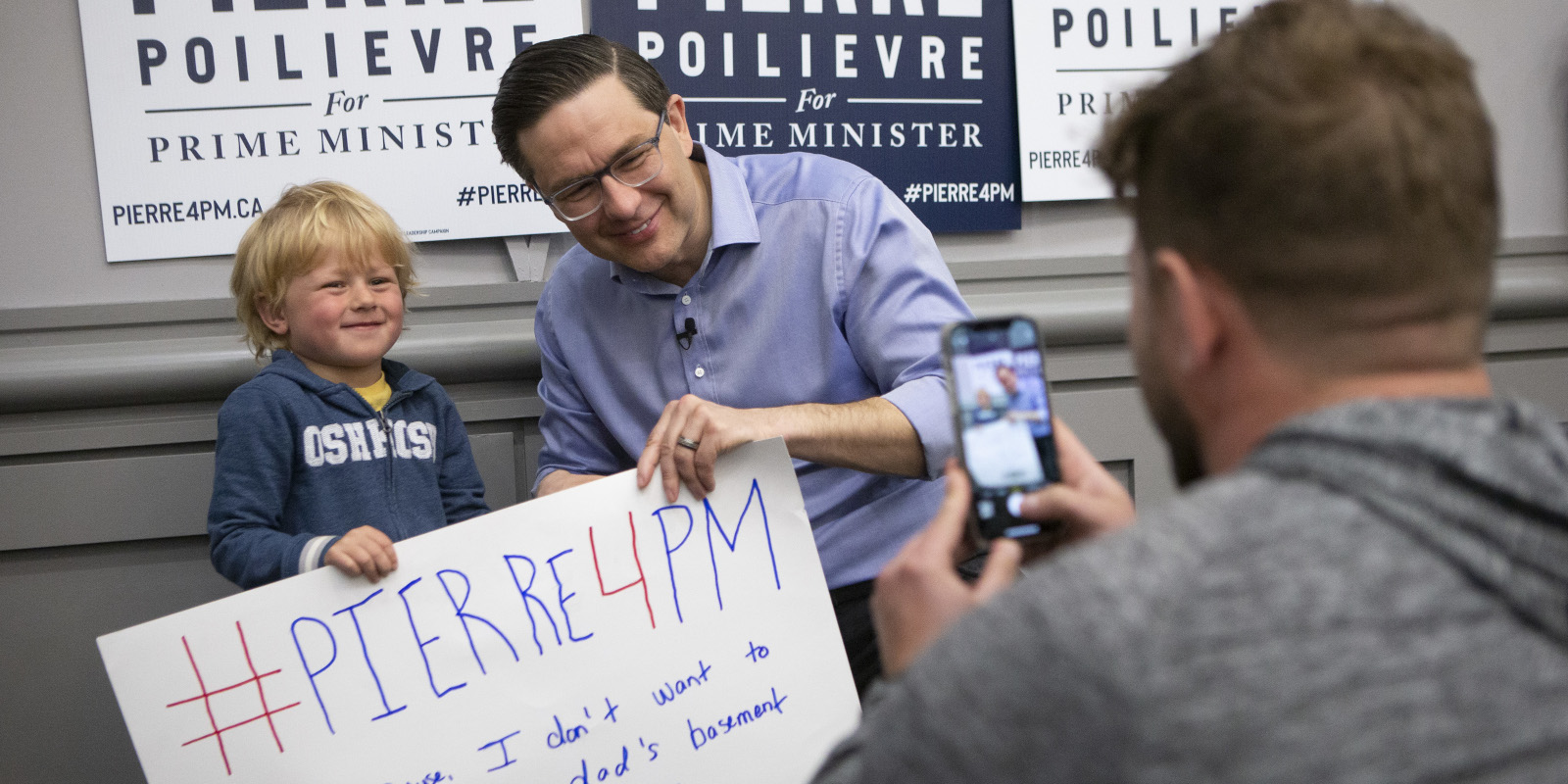They rarely get mentioned but during last year’s federal election a massive bloc of potential voters dwarfed the supporters of both the Liberal Party and the Conservative Party.
On election day, the Liberals clung to a minority government with 5.6 million voters, while the Conservatives pulled in 5.8 million voters.
Whether they were sitting at home, busy with work, or chasing children around, more than 10 million Canadians who were registered to vote chose not to cast a ballot.
What do we know about these people?
For one, some of them are embarrassed about not voting. In a recent poll, 76 percent of Canadians said they vote in every election, a number far higher than the actual turnout in recent federal elections. The online survey was produced by Public Square Research and The Hub and conducted with LEO, Leger’s online panelClick the link to join the Leger Opinion online panel and get your voice heard in surveys like this..
We also know that non-voters are far less likely to say they don’t feel a sense of duty to vote than people who claim to be committed voters. Only 15 percent of committed voters say they don’t feel a duty to vote compared to 50 percent of non-voters.
And only 40 percent of non-voters think their vote will make a difference compared to 74 percent of people who say they are committed voters. The online survey of 1,528 respondents was fielded between June 10 and June 13.
Although our political conversations tend to assume that non-voters will always be non-voters and that parties should battle over the existing voter pool, that’s not always how elections are won.
Prime Minister Justin Trudeau’s strategy in 2015 was not to move to the centre, but to lean left and energize younger voters who hadn’t voted before. It resulted in a sweeping victory and a huge increase in youth voter turnout.
Seven years later, Conservative leadership candidate Pierre Poilievre is trying to pull a similar trick.
“We get so caught up in political analysis, talking about party affiliation, when actually most Canadians don’t even think about that,” said a source on the Poilievre campaign, who wasn’t authorized to speak publicly about strategy.
The Poilievre campaign knows anecdotally that many of the people who attended their large rallies around the country this year are new to politics and they expect that many of the more than 300,000 new members they signed up during the ongoing party leadership race will be casting a ballot for the first time.
Poilievre himself has sometimes been surprised by the extent his speeches or interviews have resonated with online audiences, drawing millions of views on Twitter and Facebook, and that has informed how he has approached his public events.
For instance, Poilievre’s attacks on “gatekeepers” has become an overarching theme of his campaign, but it started as a single speech that happened to resonate and grew organically into a campaign mantra.
Poilievre believes his strength is speaking in plain terms about issues that are an immediate concern for Canadians. When something strikes a chord, he doubles down.
The Hub’s polling shows that 82 percent of people who don’t vote say they would cast a ballot if it was for a party leader they really believed in. There is a sense in Poilievre’s campaign that his style—plain speaking about highly salient issues—could be the path to these voters.
It’s strikingly similar to Trudeau’s strategy in 2015.
The voter turnout rate that year increased among people aged 18 to 24 from 55 percent in 2011 to 67 percent in 2015. Among those aged 25 to 34, it rose 11 percentage points to 70 percent. It’s no surprise that with voter turnout coming back to normal levels in subsequent elections in 2019 and 2021, Trudeau’s Liberals have been unable to get back into majority government territory.
In 2015 the Liberals were picking up young, left-leaning voters who were tired of a Conservative government, but due to the COVID-19 pandemic and the restrictions that followed, the profile of these voters may be changing.
When the trucker protest against vaccine mandates and other COVID restrictions descended on Ottawa earlier in the year, it brought the city to a grinding halt and divided the nation. Although Canadians were generally disapproving of the protesters’ tactics, they were far more inclined to say they sympathized with their complaints.
Young Canadians were especially inclined to show sympathy to the protesters.
Ipsos found that 61 percent of Canadians aged 18 to 34 said the truckers’ frustration is legitimate and deserves our sympathy, even though they may not agree with everything the protesters said.
According to Statistics Canada, the most common reason people give for not voting is “not being interested in politics” and some political organizers believe this group of people, who never previously concerned themselves with politics, has been activated by the pandemic and other economic issues.
“When you’re not filthy rich, the economy matters,” said Vitor Marciano, a political organizer in Alberta who was part of the movement to bring down Premier Jason Kenney.
Marciano said there is a common thread among this new era of populists: they’ve discovered a new group of voters who are now suddenly paying attention.
“It’s a growing group of people who’ve never been involved in politics, who have all of a sudden realized that in the past, they didn’t care about politics, but politics cared about them,” said Marciano.
This survey was conducted with LEO, Leger’s online panel. If you want your voice to be heard, you can join the LEO panel today.
Recommended for You

The Notebook by Theo Argitis: Carney’s One Big Beautiful Tax Cut, and fresh budget lessons from the U.K.

Rudyard Griffiths and Sean Speer: The fiscal hangover from the One Big Beautiful Bill hits Canada

Lucy Hargreaves: Canada needs builders, not bystanders

Ginny Roth: How vacant liberal nationalism left Canada worse off than George Grant even imagined



